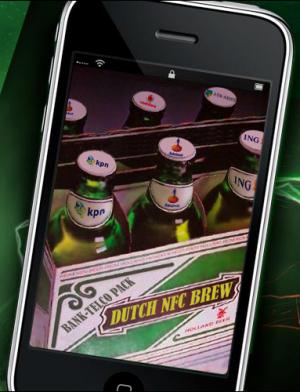Dutch Telco: NFC JV to Help Defend Against New Players

Dutch operators and banks plan to launch NFC services in the second or third quarter of 2012, probably starting in a small city followed by a nationwide launch weeks later, Peter Van Leeuwen, strategy and business development manager for mobile operator KPN, reportedly said.
He was speaking at the GSM Association’s Mobile Money Summit in Singapore yesterday, where he said that both banks and mobile operators face threats from social networking and other Web companies, as well as, for operators, handset makers, according to the GSMA’s Mobile Business Briefing.
KPN, along with major competitors T-Mobile Netherlands and Vodafone Netherlands last September announced plans to form a joint venture with the country’s three major banks, ABN Amro, ING and Rabobank. The venture, dubbed the Six Pack, plans to collaborate on NFC rollouts using SIM cards to store the secure applications.
Van Leeuwen reportedly said that social networking or commerce sites, such as Facebook and Groupon, along with eBay's PayPal unit, pose threats to banks. “Banks may become the ‘bit pipe’ of the financial industry,” he said, according to Mobile Business Briefing. “Banks need to accept that mobile is the new form of communication with consumers.”
For operators, social networks and handset makers, along with VoIP and Internet messaging are among the risks.
These threats, some of which are common for banks and telcos, are among the reasons the parties are working together on rolling out NFC, van Leeuwen said.
“By working together, banks and operators can strengthen their position in their own markets,” he reportedly said. “NFC will come to the market anyway; let’s take the market share where possible. We need to own the market space and prevent market differentiation before any other party enters the market with enough money.”
Telcos in Europe, among other places, have also expressed concerns about plans by Google to launch its mobile wallet in their markets.
But the Dutch organizers of the joint venture have said earlier that perhaps the main reason the parties formed the joint venture was to avoid fragmentation in the Netherlands, a relatively small country where three banks and three operators hold nearly all of the market share in their respective markets.
Van Leeuwen said the JV will begin choosing vendors for the project next month, presumably including hiring a common trusted service manager.












